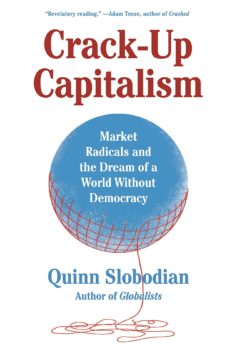 Jodi Dean in LA Review of Books:
Jodi Dean in LA Review of Books:
AT A RALLY in 2019, California Assembly Speaker Anthony Rendon announced, “When you hear about folks talking about the new economy, the gig economy, the innovation economy, it’s fucking feudalism all over again.” Rendon was there to support legislation classifying most gig workers as employees rather than independent contractors. Assembly Bill 5 was intended to bring gig workers under the protection of existing California labor laws, and the bill passed. But the following year, California voters chose feudalism: they approved Proposition 22, a ballot measure heavily funded by Uber, Lyft, DoorDash, and Instacart, that would exempt app-based drivers from the labor protections that Assembly Bill 5 tried to secure. In March 2023, a state appellate court upheld Prop 22. By making exceptions for the big transportation and delivery apps, by saying that employment laws do not apply to them, California is entrenching the labor relations—the feudalism—that Rendon warned against.
California has long been at the neofeudal vanguard. Sea Ranch, the northern coastal community founded in the 1960s, ushered in the walled settlements and private enclaves that would come to dominate the US housing landscape. California has more private security businesses than any other state (close to double that of Florida, its closest competitor). It also has more charter schools—that is, schools exempted from some state and district laws. California is at the ideological forefront of movements that seek to protect capitalism from democracy, that model communities on corporations, and that idealize the European Middle Ages. While warnings about the unfreedom and deprivation facing a society of servants come at us from all sides, Silicon Valley tech-lords and venture-capitalist libertarians are dreaming up experiments for seceding from, carving up, and perforating nation-states into a neofeudal patchwork of authority and jurisdiction.
More here.
